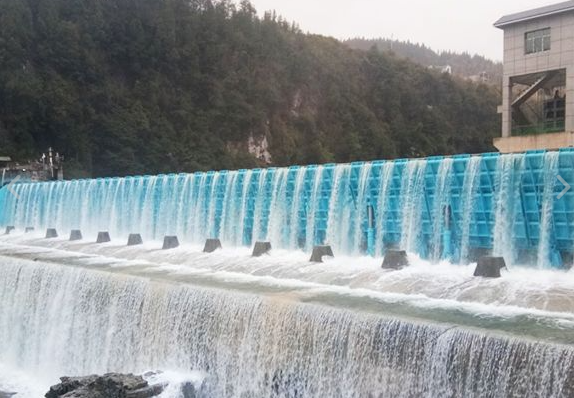What Is a Hydraulic Control Structure?
A hydraulic control structure is a man-made construction designed to manage and control the flow of water in hydraulic systems. It plays a crucial role in water resource management, ensuring the efficient and sustainable use of water for various purposes such as irrigation, flood control, water supply, navigation, hydroelectric power generation, and environmental management.
Hydraulic control structures encompass a wide range of engineered features that are strategically placed and operated to regulate water levels, flow rates, and pressures in rivers, canals, reservoirs, and other water bodies. These structures are designed to manipulate the movement, direction, and distribution of water, allowing humans to have control over water resources.
One common type of hydraulic control structure is a dam. Dams are massive structures built across rivers or streams to impound water and create reservoirs. They serve multiple purposes, including flood control, water storage, and hydroelectric power generation. By regulating the release of water from the reservoir through spillways, gates, or turbines, dams can control downstream flow and water levels.
Weirs are another type of hydraulic control structure. A weir is a barrier or low dam constructed across an open channel to raise the water level upstream and control the flow. Weirs can be used for various purposes, such as measuring flow rates, diverting water into irrigation canals, or maintaining a constant water level in a canal.
Gates and valves are essential components of hydraulic control structures. They are used to control the flow of water by opening, closing, or adjusting their positions. Gates can be operated manually, mechanically, or hydraulically, allowing for precise control of water levels and flow rates. Valves are designed to regulate the flow by adjusting the opening or closing of a passage, enabling the control of water pressure and distribution.
Pumps are another important aspect of hydraulic control structures. They are used to lift or move water from a lower level to a higher level. Pumps play a vital role in irrigation systems, water supply networks, and drainage systems, ensuring the efficient transport of water to desired locations.
Channels and canals are also considered hydraulic control structures. They are engineered pathways designed to convey water efficiently from one location to another. Channels can be straight or curved, and they are often lined with concrete or other materials to prevent erosion. Canals are larger waterways that are used for irrigation, navigation, or water supply purposes, and they may incorporate locks and gates to control water flow.

Hydraulic Elevator Dam
The design and operation of hydraulic control structures require careful consideration of various factors, including hydraulic principles, engineering standards, environmental impacts, and water management objectives. Hydraulic modeling and simulations are often employed to evaluate the performance of control structures and optimize their designs.
Furthermore, automation and advanced technologies have enhanced the capabilities of hydraulic control structures. Modern control systems utilize sensors, actuators, and real-time data to monitor water levels, flow rates, and other parameters. This allows for precise and efficient control of water management processes.
In conclusion, hydraulic control structures are essential components of water resource management systems. They provide humans with the ability to control the movement and distribution of water, ensuring its effective utilization for various purposes. From dams and weirs to gates, valves, pumps, channels, and canals, these structures enable the regulation of water levels, flow rates, and pressures. Through careful design, operation, and automation, hydraulic control structures play a vital role in achieving efficient and sustainable water management practices.
If you want to know more information about hydraulic control structures, please contact us. We will provide professional answers.
908
0
0



Comments
All Comments (0)